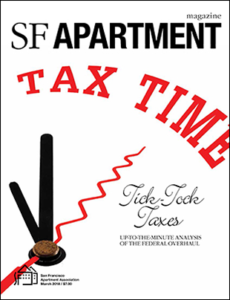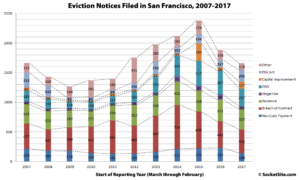“By imposing a 10-year waiting period on alterations to non-conforming units where property owners have exercised their Ellis Act rights, the ordinance penalizes property owners who leave the rental market. The ordinance does not regulate the particulars of the remodeling of a nonconforming unit, but rather prohibits any such changes for a period of 10 years after the property owner exits the rental business. By imposing such a prohibition on property owners who have left the rental market, the ordinance challenged here improperly enters the field of substantive eviction controls over such property owners.”
In SPOSFI v. CCSF (2018), the Small Property Owners of San Francisco challenged San Francisco Ordinance 286-13. Prior to that ordinance, Section 181 of the Planning Code prohibited the “enlargement, alteration or reconstruction” of nonconforming units. (These are legally constructed units in buildings that were “down-zoned” after the fact. As this is essentially a “math” problem, a property owner would designate the particular unit in the property that gets the “nonconforming” designation.)
Ordinance 286-13, however, allowed such modifications within the existing building envelop, so long as residential use was principally permitted in the zoning district and the owner had not performed a non-fault eviction at the property. The owner could not make any changes for a period of ten years following a non-fault eviction.
Continue reading “Small Property Owners of San Francisco v. City and County of San Francisco (2018) – Cities May Not Impose Land Use Penalties on Property Owners Who Have Invoked the Ellis Act”







